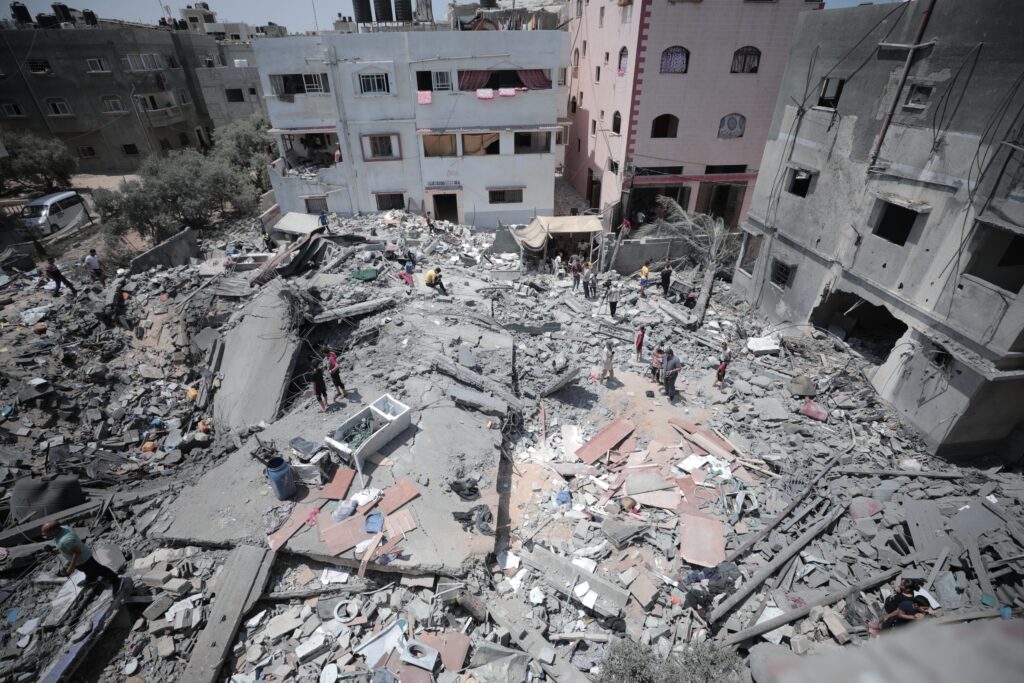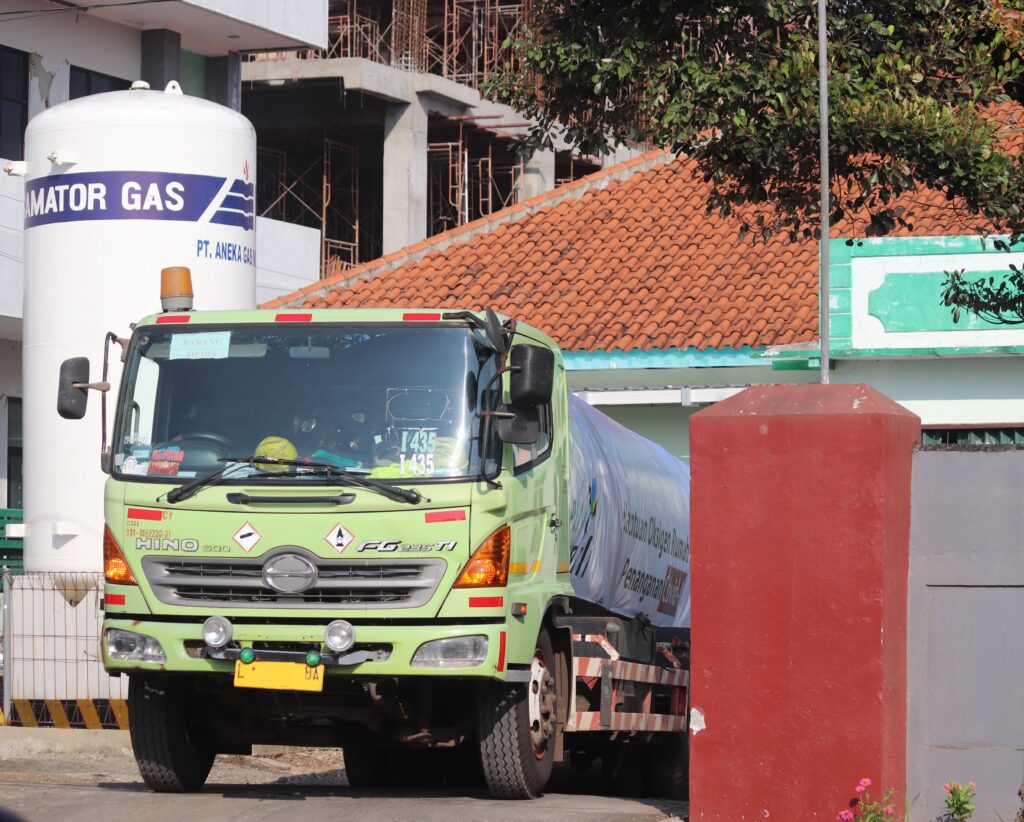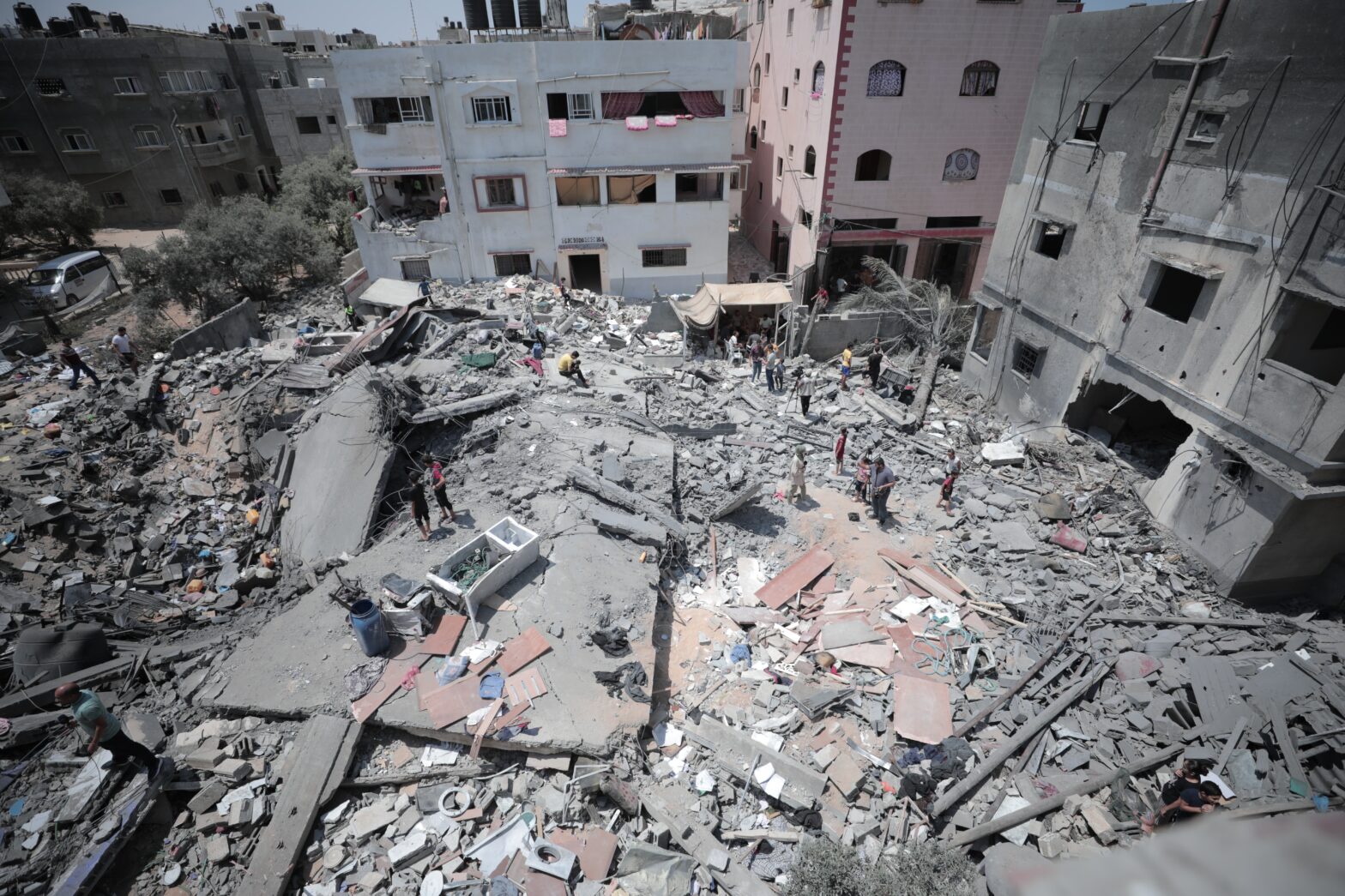The World Health Organization (WHO) has expressed deep concern over Israel’s decision to evacuate Gaza hospitals, labeling it as a “death sentence” for the affected population. The already struggling health care system in Gaza has been underfunded for decades, and the recent escalation of violence has worsened the situation. With insufficient resources, a shortage of hospital beds, and a chronic lack of basic medical supplies, Gaza’s hospitals are now overwhelmed. This dire situation has led to increased rates of infection and amputation, and the UN has warned that the imminent depletion of fuel for generators could result in a widespread outbreak of disease. Gaza’s health care system has long been neglected, with high maternal and infant mortality rates, and the current conflict has further compounded the issue by destroying critical infrastructure and causing a loss of medical professionals. The future of Gaza’s health system remains uncertain, and urgent international support is needed to address this grave humanitarian crisis.
Click Here To Purchase The Latest News On WHO’s Concerns
Background Information
Underfunded Health Care System in Gaza
Gaza’s health care system has long been plagued by financial challenges and underfunding. Even before the recent escalation of violence, the system was struggling to meet the needs of its population due to limited resources. This underfunding has had detrimental effects on the quality of care provided to patients in Gaza.
Effects of the Blockade on Gaza’s Health System
In addition to the financial struggles, Gaza’s health care system has been significantly impacted by a blockade imposed by Israel over the past 16 years. The blockade has restricted the flow of essential goods and supplies into Gaza, including medical equipment and medications. This has further exacerbated the already dire situation, making it even more difficult for health facilities to provide adequate care to patients.
WHO’s Concern and Statement
WHO’s Expression of Concern
The World Health Organization (WHO) has expressed deep concern over Israel’s evacuation of Gaza hospitals, stating that it is tantamount to a “death sentence” for many patients. The forced closure of hospitals and the disruption of medical services has left thousands of people without access to critical care, putting their lives at risk.
Calling it a ‘Death Sentence’
The WHO’s strong statement highlights the severity of the situation in Gaza’s health care system. The organization’s concern stems from the fact that many patients who require urgent and specialized care are now unable to access the necessary treatments and procedures. This has dire consequences for their health and well-being, leading to unnecessary suffering and potentially preventable deaths.

Get More Information About WHO’s Concerns And Purchase Now
Pre-existing Challenges in Gaza’s Health Care System
Insufficient Resources
Even before the recent escalation of violence and the tightening of the blockade, Gaza’s health care system struggled with limited resources. This has led to a shortage of medical equipment, medications, and trained healthcare professionals. The lack of resources has hampered the system’s ability to provide adequate care to the population.
Overwhelmed Hospitals
Gaza’s hospitals are currently overwhelmed by the influx of patients requiring medical attention, both due to the violence and the ongoing COVID-19 pandemic. The limited number of hospital beds and medical staff have been stretched to their limits, resulting in a compromised quality of care.
Lack of Hospital Beds and Basic Medical Supplies
One of the most pressing challenges in Gaza’s health care system is the lack of hospital beds and basic medical supplies. Even prior to the recent events, the system was ill-equipped to handle the medical needs of the population. The blockade has only exacerbated this issue, making it even more difficult for hospitals to adequately care for patients.
Increased Rates of Infection and Amputation
The lack of resources and overwhelmed hospitals have contributed to increased rates of infection and amputation in Gaza. Without proper sanitation and access to essential medical supplies, patients are at a higher risk of developing infections. Additionally, delayed or inadequate access to medical care has resulted in an increase in amputations, particularly among individuals injured during the recent violence.
Impending Fuel Shortage and Disease Outbreak
The UN estimates that Gaza’s hospitals will soon run out of fuel for generators, which are crucial for maintaining power supply in medical facilities. This impending fuel shortage could have devastating consequences, leading to further challenges in providing adequate care and potentially causing a widespread disease outbreak. The lack of electricity would hinder critical medical procedures, storage of vaccines, and the operation of life-saving equipment.
Historical Neglect and Underfunding
Chronic Underfunding of Public Hospitals
Gaza’s health care system has long suffered from chronic underfunding, particularly in public hospitals. This underfunding has severely limited the system’s ability to deliver quality care to the population. Insufficient funding means that hospitals cannot afford to upgrade their facilities, purchase necessary equipment, or adequately compensate healthcare professionals.
Heavy Reliance on Outside Funding
Due to the chronic underfunding of public hospitals, Gaza’s health system heavily relies on outside funding from humanitarian organizations. While this outside support has been crucial in sustaining the system, it also highlights the larger issue of long-term neglect and inadequate governmental investment in health care infrastructure.
Impact on Health Indicators
The historical neglect and underfunding of Gaza’s health care system have had pronounced impacts on health indicators. Maternal and infant mortality rates in Gaza are significantly higher than global averages, demonstrating the need for urgent investment and improvement in the health sector. The lack of adequate funding and resources has also contributed to the spread of infectious diseases, further endangering the population’s health.
Spread of Infectious Diseases
The deteriorating health care system in Gaza, exacerbated by chronic underfunding, has resulted in the spread of infectious diseases. Crowded living conditions, inadequate sanitation, and limited access to clean water have created a breeding ground for diseases such as cholera, typhoid, and hepatitis. The lack of resources and medical personnel to effectively address these outbreaks has led to a continuous cycle of disease and suffering within the population.

Effects of Israeli Blockade
Worsening Health System in Gaza
The Israeli blockade has significantly worsened the already fragile health system in Gaza. By restricting the entry of essential medical supplies, medications, and equipment, the blockade has impeded the ability of health facilities to provide adequate care to patients. The limited resources, exacerbated by the blockade, have pushed the system to the brink of collapse.
Direct Impact on Mortality Rate
The blockade has had a direct impact on the mortality rate in Gaza. Patients who require advanced and specialized care are often unable to access the necessary treatments due to restrictions imposed by the blockade. This lack of access to vital medical interventions has resulted in avoidable deaths and a higher mortality rate among the population.
Limited Access to Advanced Care
The blockade has severely restricted Gaza residents’ access to advanced care, forcing many to seek treatment outside of the region. However, obtaining permission to leave Gaza for medical treatment is a bureaucratic and often lengthy process, leaving many patients without timely access to life-saving interventions. The lack of advanced care options within Gaza further exacerbates the challenges faced by the already struggling health care system.
Uncertainty of Gaza’s Health System
Destruction of Infrastructure
The ongoing conflict in Gaza has caused extensive damage to health care infrastructure, further complicating the already dire situation. Hospitals, clinics, and other medical facilities have been damaged or destroyed, rendering them inoperable and limiting the capacity to provide essential care to patients. The destruction of infrastructure has left the health system in ruins, with uncertain prospects for rebuilding and recovery.
Loss of Medical Professionals
The ongoing conflict has also resulted in the loss of medical professionals in Gaza. Healthcare workers, who are vital to the functioning of the health care system, have been injured or killed during the violence. Additionally, the persistent instability and insecurity in the region have forced many healthcare professionals to leave Gaza in search of safety and opportunities elsewhere. This loss of skilled medical personnel further strains the already weakened health system.
Impact of Ongoing Conflict
The ongoing conflict in Gaza has a profound impact on the overall health system. The violence disrupts the delivery of essential medical services, making it increasingly difficult for healthcare providers to care for patients. Furthermore, the constant fear and trauma experienced by the population have long-lasting psychological effects that require specialized mental health care services. The ongoing conflict continues to hinder the efforts to rebuild and strengthen Gaza’s health system.
In conclusion, Gaza’s health care system has been facing chronic underfunding, limited resources, and an ongoing blockade for years. The recent escalation of violence and the tightening of the blockade have further devastated the already fragile system. The consequences of this dire situation are dire, with patients being denied access to critical care, an overwhelmed healthcare system, and an uncertain future. Urgent action and international support are needed to address the immediate challenges and ensure the rebuilding and strengthening of Gaza’s health care system.
Explore The Alarming Situation In Israel’s Evacuation, Buy Now
